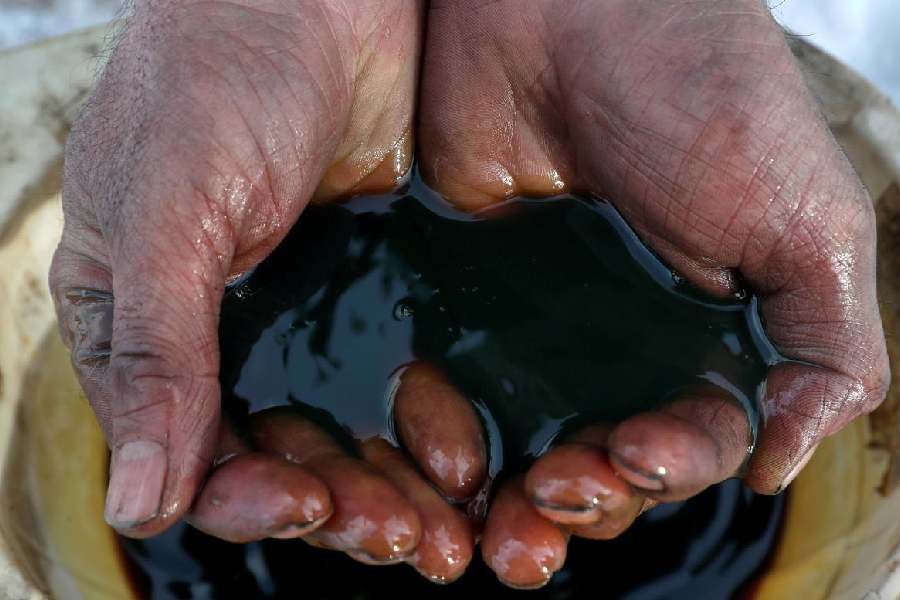The rising tension between Iran and Israel is being closely watched by India as any escalation would have a significant economic impact on New Delhi.
The simmering tension has already pushed up benchmark Brent to a six-month high of $90 per barrel and any further escalation could result in oil prices spiking.
The country imports 80 per cent of its crude oil needs and any spike in oil import bill would have overall economic implications.
A spike in oil prices would have an impact on the country’s growth, push up inflationary pressure in the economy, and distort the balance of trade and current account deficit, thus putting pressure on the rupee.
The cheap import of crude oil from Russia was helpful in India’s macroeconomic interests.
Despite this, a majority of India’s imports still come from West Asia, amounting to 44 per cent in 2023.
India is vulnerable to supply disruptions in crude oil prices if the war escalates.
A couple of weeks after the Russia-Ukraine war broke out, the WTI (West Texas Intermediate) crude oil prices touched over $133 per barrel, while Brent crude oil prices reached over $139 per barrel, according to a study. This was the highest price hike since 2008.
Since then, oil prices have fallen sharply due to the slowdown in the global economy, but they have remained much higher than pre-war levels.
Collectively, West Asia is the world’s largest supplier of oil. As such, any risk of supply disruptions will undoubtedly result in a price hike.
India’s crude oil imports rose 9.4 per cent year-on-year in 2022-23 to 232.4 million tonnes (MT).
Analysts said the seriousness of the impact of the conflict will depend on how long the escalation continues and how other nations in the region like Iran act.
Iran joining the fray can affect the sea routes and push up transport and insurance costs.
“A volatile oil price trajectory would affect our current CAD (current account deficit), inflation and growth estimate,” Madhavi Arora, lead economist at Emkay Global Financial Services, said.
“We note at $90/bbl average from the estimated $85/bbl, our CAD estimate will rise to 1.6 per cent from the current 1.4 per cent and our retail inflation forecast by 18-22 bps from 5.2 per cent to 5.4 per cent, while GDP growth could be hit by 10 basis points (bps), ‘ceteris paribus’ (all other variables remain constant),” Arora said.
As a rule of thumb, every $10 increase in crude oil prices can cause the CAD to expand by 40-50 basis points.
“A major channel of impact on the global economy would be via oil prices which have already risen above $90 level. Further escalation of the conflict towards other West Asian nations that are key oil producers poses a bigger threat. It needs a very close watch given that the global economy is currently facing a ‘higher for longer’ interest rate scenario,” said Kanika Pasricha, economist, Standard Chartered Bank.
When the Israel-Hamas war broke out, oil prices soared and threatened to breach the $100 a barrel mark, threatening efforts to curtail inflation.
However, the possibility of Iran’s attack on Israel has added fuel to the fire, as crude oil prices are nearing six-month highs despite a rate cut from the US Federal Reserve. This comes on the heels of the Organisation of Petroleum Exporting Countries (OPEC) extending voluntary cuts of 2.2 million barrels per day to maintain market stability.











